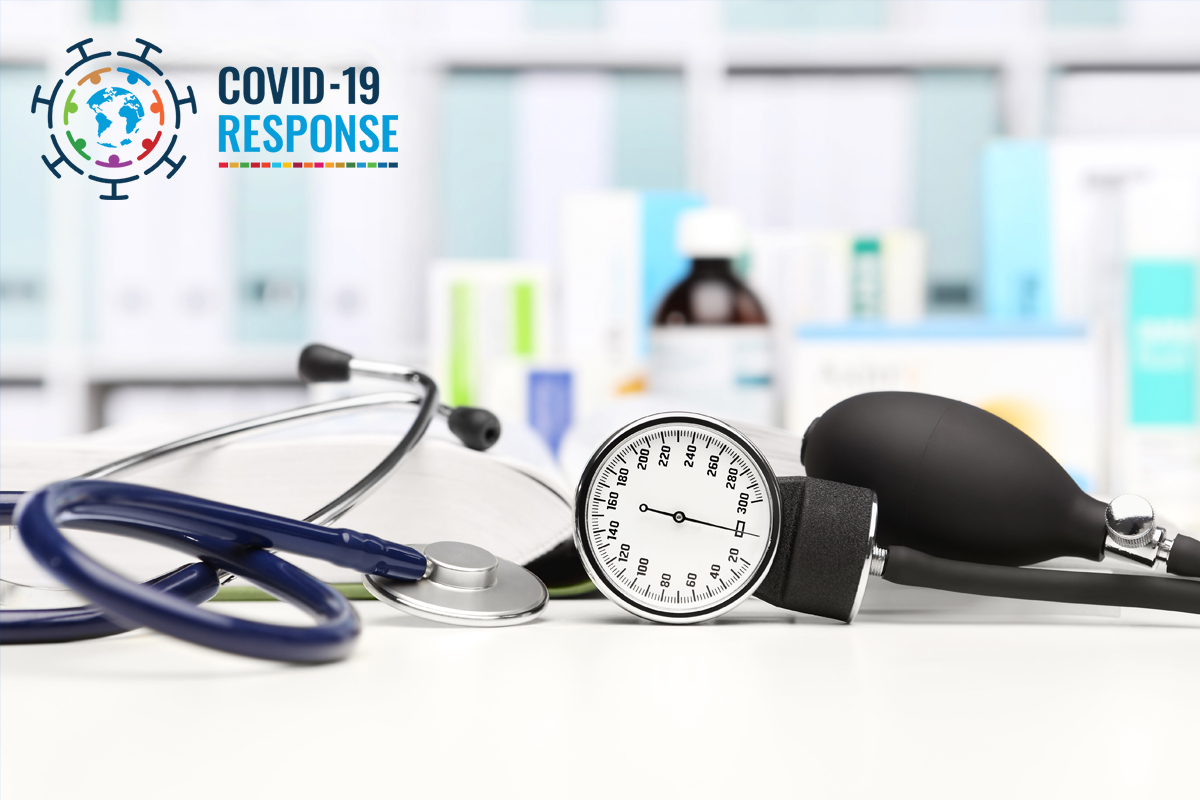
Nigeria, 14 April 2020 - Based on the 2019 Drug Use Survey in Nigeria, the United Nations Office on Drugs and Crime (UNODC) estimates that there are more than three million Nigerians living with some sort of drug use disorder. Government imposed lockdowns as they are being implemented across most Nigerian States weigh particularly heavy on them. While access to drugs has become more difficult, accessing treatment and counselling services has become more difficult too. In addition, the self-imposed isolation can be experienced as particular burdensome by those suffering from drug use disorders as well as their families.
In order to provide immediate and practical relief, UNODC within the framework of the EU funded Nigeria Drugs Project, partnered with 80 frontline health workers, including medical doctors, drug counsellors and allied professionals across Nigeria to provide over-the-phone assistance for drug users or families who need such services during the COVID-19.
The health professionals who enthusiastically responded to UNODC’s request to establish this network have been trained and certified under the project in drug treatment using the Treatnet methodology and/or Universal Treatment Curriculum (UTC).
The 2019 Drug Use Survey in Nigeria revealed that there is a clear gap in meeting the needs for treatment and care for people with drug use disorders. Around 40 per cent among those reported that they had wanted to receive drug treatment but were unable to access such services. The vulnerability of the drug use population is of grave concern, especially as the global community grapples to contain the COVID-19 pandemic and flatten the curve of infections.
Due to their poorer health profile, drug users are more vulnerable to experiencing COVID-19 more severely. In case they have pre-existing conditions, they will be at greater risk. Given the stigma experienced by drug users, they might be unable to access health care services at this time. In addition, during this period of lockdown, drug users can face drug-related health issues like withdrawals for which they might feel the need to talk to a health care provider. It is imperative therefore that the national responses to this public health emergency, takes drug users into consideration.
Drug users or their family members who experience distress during the lockdown and require advice whether medical or from a counsellor will be able to contact any of the doctors/counsellors in the geopolitical zones where they reside for advice. The distress could be related to drug or alcohol withdrawal, loss of appetite, inability to sleep, or more seriously, a psychotic episode that the user or their family is unable to manage during the lockdown.
Ensuring access to treatment services for drug users is key to achieving SDG3 – Good Health and Wellbeing and we must ensure that we Leave No One Behind by not excluding drug users from the COVID-19 response.
For further information, including contact details, please see the website of the UNODC Country Office Nigeria